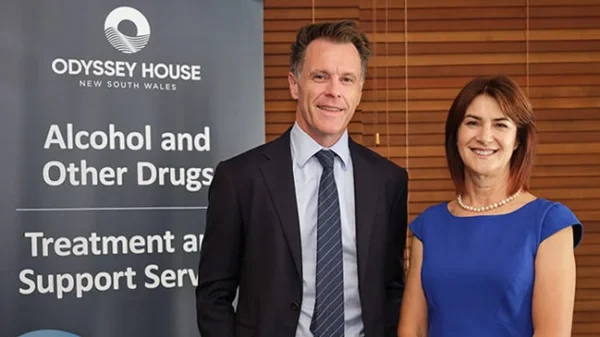Homeless deaths marked at solemn service
They may have died on the streets, but their passing was marked with a solemn service in Martin Place, Sydney, on the shortest day of the year – the winter solstice.
Every year, the number of people who come to stand in the cold and pay their respects grows, but sadly, so too does the number of people dying on our streets.
In the past three months alone, a dozen people have died sleeping rough in Inner Sydney, according to the End Street Sleeping Collaboration.
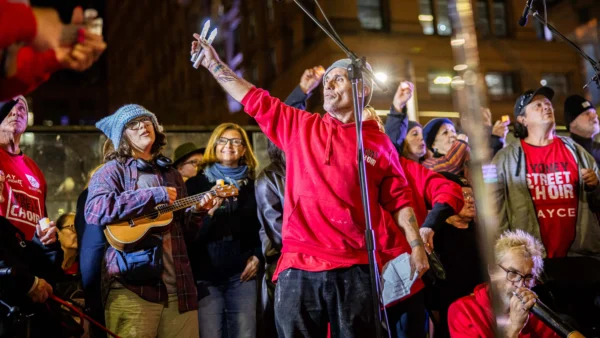
“Tonight, we remember those who have died on the streets,” said Fr Peter Smith, Promoter of Justice and Peace for the Archdiocese of Sydney.
“Amidst all this wealth,” Fr Peter said, standing in the Martin Place Amphitheatre, flanked by Australia’s biggest financial institutions, “is a reminder that a society is not judged by its wealth and by its success, but by how much it values its vulnerable”.
“I also want tonight to be a night about hope – about promises that we will end poverty and homelessness in our city, because no one – no one – should die alone, unloved, and unmourned,” he told those gathered.
“So, as we mourn the deaths of people tonight, let us also celebrate life and promise to support it.”
The camaraderie and sense of community rang clear in the songs of the Sydney Street Choir and the Honeybees community choir.
The event is supported by the End Street Sleeping Collaboration, the Archdiocese of Sydney’s Justice and Peace Office, Catholic Cemeteries and Crematoria, the PAYCE Foundation, and the St Vincent de Paul Society.
Event organiser Dominic Sullivan said many of the people who died on the streets had no commemoration and no one to mourn them.
“This service is a moment for the community to come together, remember those lost, and recommit to action,” Mr Sullivan said.
“People should not be dying on the streets, and they should not die anonymously – that is not the mark of a caring and compassionate society. The increasing numbers of people living on the streets is alarming, and this service will not only remember those who have died but also refocus our efforts to end homelessness.”
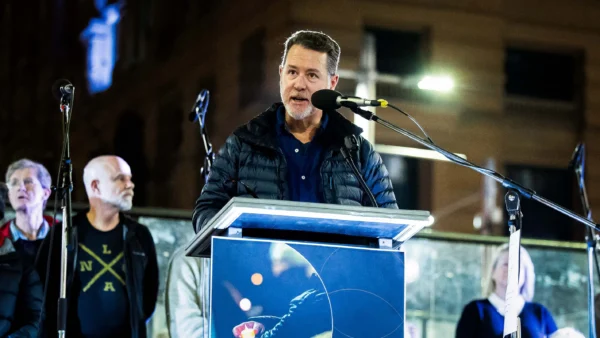 PAYCE Foundation Director Dominic Sullivan acknowledges the community coming together to mourn Sydney’s fallen homeless.
PAYCE Foundation Director Dominic Sullivan acknowledges the community coming together to mourn Sydney’s fallen homeless.
“Singing heals, music heals,” said the Sydney Street Choir’s Mary Kiani, but added that the choir is more than just that: “It’s about being a community as well, that’s looking out for each other.”
“A lot of the people in the choir probably don’t have anybody else in their lives, you know, and it’s the one place where they can fit in,” she said. “Everyone’s accepted – we just come together and sing.”
The crowd was joined by Bishop Danny Meagher, who led the Opening Prayer; Bishop Terry Brady; Imam Mahmoud Alazhari from the Australian National Imams Council; CEO of Jewish House Rabbi Mendel Kastel; the Rev Bill Crews; as well as leaders from business, community, and politics – including NSW Minister for Homelessness Rose Jackson, who gave the keynote address.
Sue Buckingham, from the support organisation David’s Place, read a tribute to Graeme Manuel, one of those who died this year. He was described as a ‘street brother’ to his mates.
“Graeme is remembered by all who knew him over the last 20 years as kind, gentle, joyful, and a true friend,” she said. “Graeme was on the autism spectrum, and this made life very difficult for him in his earlier years. Finding out ‘what’s wrong with me’ 15 or so years ago freed him to be himself.”
“I remember him being so happy to know his diagnosis.”

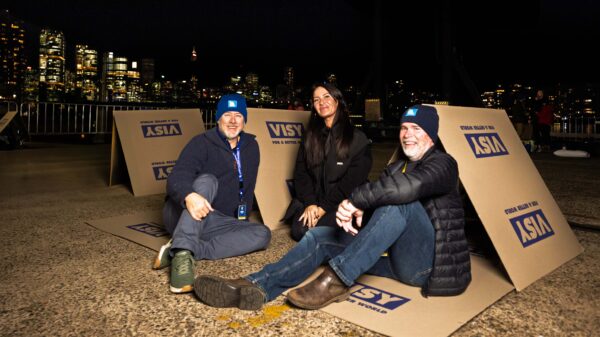 Preparing for a long, cold night: Dominic Sullivan and Tony Wishart, with PAYCE Foundation Director Sophie Boyd.
Preparing for a long, cold night: Dominic Sullivan and Tony Wishart, with PAYCE Foundation Director Sophie Boyd.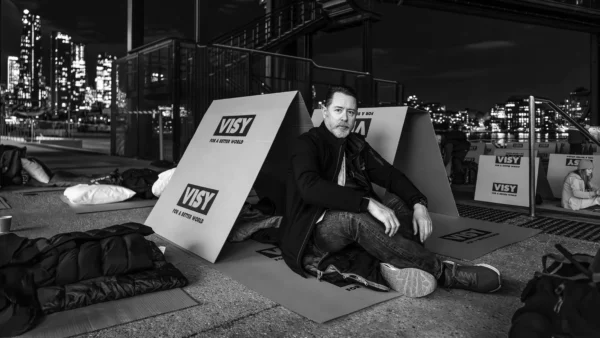
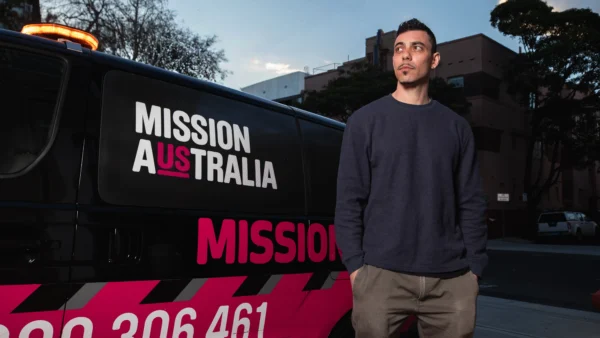 Stefan Mackenzie foresees positive change using the By-Name-List.
Stefan Mackenzie foresees positive change using the By-Name-List.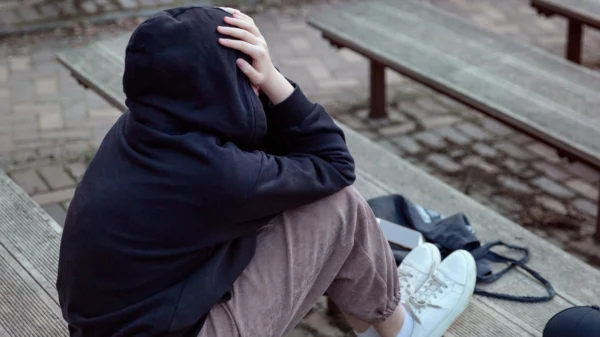
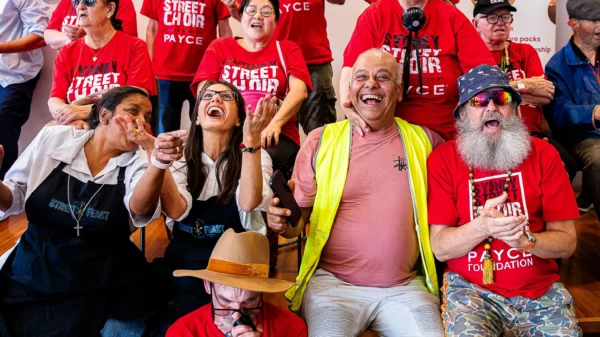
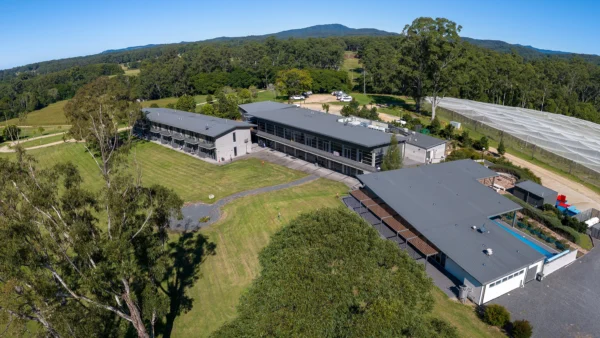
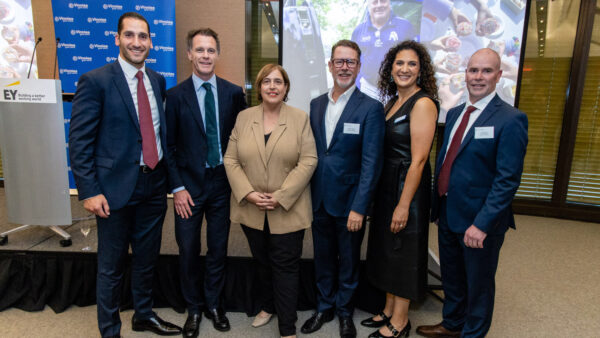 Premier Chris Minns (second from the left) launches a new fundraising drive, with Talal Ghattas, PAYCE Foundation, Yolanda Sainz, CEO of St Vincent De Paul Society NSW, Dominic Sullivan, PAYCE Foundation, Jose Charbel, Vinnies Vans and Tony Wishart, PAYCE Foundation.
Premier Chris Minns (second from the left) launches a new fundraising drive, with Talal Ghattas, PAYCE Foundation, Yolanda Sainz, CEO of St Vincent De Paul Society NSW, Dominic Sullivan, PAYCE Foundation, Jose Charbel, Vinnies Vans and Tony Wishart, PAYCE Foundation.